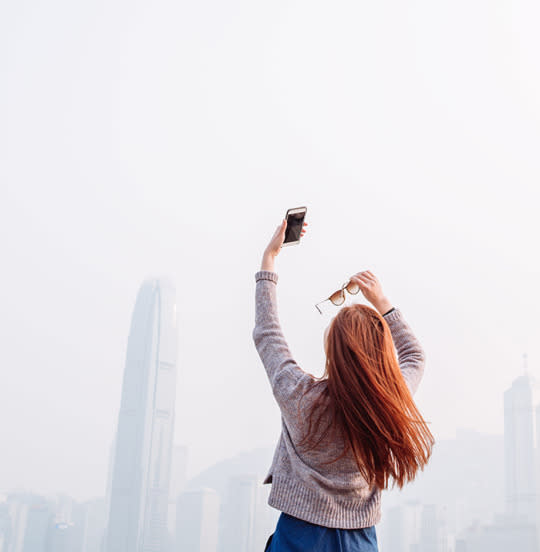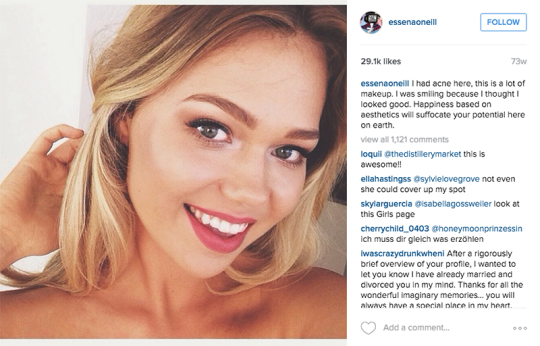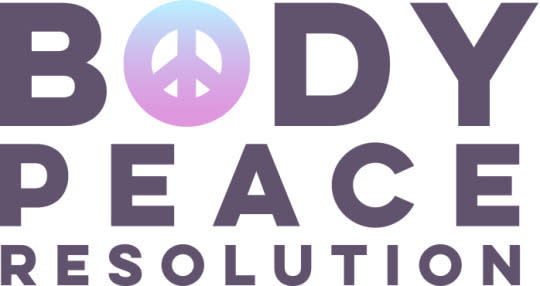Is Selfie Culture Helping or Hurting Our Feelings of Self-Worth?

Does saying cheese (to yourself) impact self-esteem? (Photo: Getty Images)
Late last year, Instagram star Essena O’Neill “quit Instagram.” She deleted most of her photos, and in the posts that remained, she detailed how fake her Instagram-famous life really was.
“For this photo I hardly ate for a week,” the 19-year-old says in one post. “I bought this bikini just for this photo. I posed for hours until the photo was perfect.” In another, she quips, “This is what I like to call a perfectly contrived candid shot …”

One of Essena O’Neill’s Instagram posts. The caption reads: “I had acne here, this is a lot of makeup. I was smiling because I thought I looked good. Happiness based on aesthetics will suffocate your potential here on earth.” (Photo: Essena O’Neill/Instagram)
In a YouTube video — which now has more than 1.2 million views — O’Neill explained why she was pulling the mask off her Instagram celebrity. She claims she had it all: modeling offers, sponsorship deals, and an attractive boyfriend. But she was also miserable, seeking validation and acceptance with superficial likes and an army of faceless followers on social media.
As a preteen, she says she meticulously analyzed and obsessed over the beautiful women she saw on social media. “They had all these likes, and all of these views and followers,” she explains. “I thought, Damn, they would be so happy, surrounded by all these people who love them and appreciate them. I want that. I want to be valued. … At 12, I told myself I would be of value the more views I got on YouTube. … I will feel happiness.”
As social media sponsorship opportunities expanded, O’Neill sought that validation. But while all those happy, pretty, empowering selfies curated the image of a happy, pretty, empowering life, they didn’t actually provide one.
Certainly, not everyone uses selfie culture for validation and superficiality. In the wake of O’Neill’s announcement, other social media celebrities pronounced that they were neither depressed nor faking it. And research shows selfies might have some positive effects: A Yahoo Health survey found that 22 percent of teen and 17 percent of millennial women glean confidence from selfies, for instance. And a 2016 study conducted by Today/AOL indicated that 65 percent of teen girls check out their selfies for a self-esteem boost.
But “selfie culture” may also have a dark side, spawning negative psychological side effects. A 2015 study of 800 men showed those who post more selfies are more narcissistic and show signs of psychopathy. Last year, researchers also found that the pressure to be active on social media was linked to depression and anxiety in teenagers. The studies don’t show that one directly causes the other, but the associations are alarming.
And we can’t run from it; selfies are permeating society from all their many angles. Take, for instance, the fact that the Oxford University Press declared selfie to be the Word of the Year in 2013. And last September, Conde Nast Traveler ran a story comparing the number of shark attack deaths to those who had died in a selfie-related incident. The results — sharks: 8, selfies: 12 — instantly went viral. It seemed both outrageous and impossible, but it also seemed like somewhat of a sad metaphor: Is selfie culture not just literally killing us but also killing our body image, our well-being, and our self-worth too?
The selfie’s hidden health dangers
Between all the “relfies” (relationship selfies), workout pics, and no-makeup Instagrams, seeds of appearance-oriented obsession may start to take root, according to Art Markman, PhD, a professor of psychology at the University of Texas, Austin.
“A lot of the scientific work on body image, like that done by psychologist Eric Stice, shows that when people compare themselves to the models they see in media, that can influence the way they view themselves,” he tells Yahoo Health. “When people internalize a thin ideal for body image, then they often see themselves as overweight. That can lead to inappropriate restriction of eating and to eating disorders like anorexia and bulimia.”
And we’re flooded by more pin-thin, impossibly hourglass shapes than ever. “Social media” supermodels like Kendall Jenner, Gigi Hadid, and Karlie Kloss are emerging in an age in which we can track their every move — workout, diet, beauty routine, and beyond. Bloggers and celebrities are creating brands out of their social media image.
This can breed a culture of self-comparison, says counselor and psychologist Karla Ivankovich, PhD, an adjunct professor of psychology at the University of Illinois, Springfield. And the way we view ourselves hinges on it, a concept first introduced by American sociologist Charles Horton Cooley roughly a century ago.
“Cooley’s concept of the looking-glass self suggests that a person’s sense of self is the result of their social interactions with others,” she tells Yahoo Health. “Specifically, the view we have of ourselves comes from contemplating our personal qualities and the impressions of how others perceive us — so how we see ourselves does not come from who we really are but rather from how we believe others see us.”
Naturally, we want others to perceive us in the best possible light. The problem is, no one really knows a person from his or her selfie reel. Interestingly, researchers are linking facets of personality to our selfie style. For instance, in a 2014 study from Computers in Human Behavior, psychologists linked duck-face photos to neuroticism, taking a photo in a personal setting (like a bathroom or bedroom) to lower conscientiousness, and perceived emotional positivity in photos to agreeableness and openness.
When men and women were asked to judge these selfies, the only personality cue they were able to accurately predict from the photographs was a person’s degree of openness. Ditto physical appearance, according to Ivankovich, noting that frequent social media posting can cause us to nitpick our appearance — and become outlets to exacerbate mental conditions like body dysmorphic disorder and obsessive compulsive disorder. While most of us know beauty is in the eye of the beholder and much more than skin deep, we tend to forget this and believe beauty is in the eye of the 876 Instagram followers who may or may not like our selfie today.
And how much we believe that untruth may be linked to narcissism. Dylan Selterman, PhD, a professor of psychology at the University of Maryland, points to several recent studies linking facets of narcissism with selfie-posting frequency, including a 2015 study published in the journal Psychology of Popular Media Culture showing more vulnerable narcissists tend to take selfies centered around physical appearance.
If your self-worth is tied to your appearance, he says culture perpetuates the idea that validation — or, sometimes, rejection — is just a selfie and a few likes away. “It’s the gratification we seek — and we have less patience for it today, because media is faster,” Selterman tells Yahoo Health. “We expect that instant response.”
Narcissism thrives in an abundance of selfies and social media posts, but also falls along a spectrum with big individual differences, says Markman. “There are some narcissists who have a pretty healthy self-concept,” he explains. They enjoy the accolades of others and largely ignore the negative comments. But some narcissists are more vulnerable, and they need other people’s energy to support their self-esteem.”
In selfie culture, this can lead to neurotic behavior and thoughts. “They can get angry, anxious, or depressed when they feel they will not be well-represented by their pictures,” Markman says. “They also find it hard to take criticism.” So any less-than-positive comments about photos can ruin a vulnerable narcissist’s day.
Markman says that some narcissistic qualities can be useful, as it’s “good to have the confidence to promote yourself in public.” But perhaps unsurprisingly, research has found that those who are more narcissistic tend to have higher levels of the stress hormone cortisol — especially those who feel more maladaptive traits like entitlement and defensiveness of their superiority, according to a 2012 study from the University of Michigan. Constantly elevated cortisol leaves the body in a perpetual state of “alert,” burning loads of excess energy and leaving you prone to health conditions like hypertension and heart disease.
How to navigate the landscape of selfies
So, is that “like” really worth it? Well, it’s not all bad. Certain selfies may be beneficial to our mental health and well-being, says Selterman.
Take the rise of the “relfie” (relationship selfie) as an example. One 2014 study showed that those with Facebook “relfies” and dyadic relationship statuses (those talking about their partners) had higher relationship satisfaction — something their network was able to, for the most part, accurately glean.
But these relfies can be positive or negative, and it all lies in motive; 2014 research shows that some share posts and photos of their loves via social media because they’re proud of their relationship, others because they’re anxious about it. Some in the latter group require higher levels of “relationship visibility” to convince others (and themselves) that their relationship is strong; others hide their partners from social media profiles.
“The study showed people who are insecurely anxious were more likely to post relationship stuff, and insecurely avoidant were less likely,” says Selterman. “This seems to suggest that both posting and not posting can each potentially reflect underlying insecurities — so posting is not always a reflection of insecurity, because other forms of insecurity can drive people to do the opposite.”
The bottom line? We’d all be wise to think about why exactly we use social media and what our habits say about ourselves. If we’re posting that workout selfie to track our own progress and inspire others to get in shape? Great. If we’re posting that selfie simply for validation from others? Not so great.
“People who have many outlets for reaching out to others and many interests will probably find their empowering selfies to make them feel better about themselves,” says Markman. “The more that people have bound their interactions with the world up in the selfies they present, the less good they will feel about themselves regardless of the types of pictures they are taking.”
So fill your life with lots of interactions and lots of good people — and remember: Your self-worth is not defined by your latest selfie. It’s shockingly easy to forget.
Body-Peace Resolution is Yahoo Health’s January initiative to motivate you to pursue wellness goals that are not vanity-driven but that strive for more meaningful outcomes. We’re talking strength, mental fitness, self-acceptance — true and total body peace. Our big hope: This month of resolutions will inspire a body-peace revolution. Want to join us? Start by sharing your own body-positive moments on social media using the hashtag #bodypeaceresolution.
